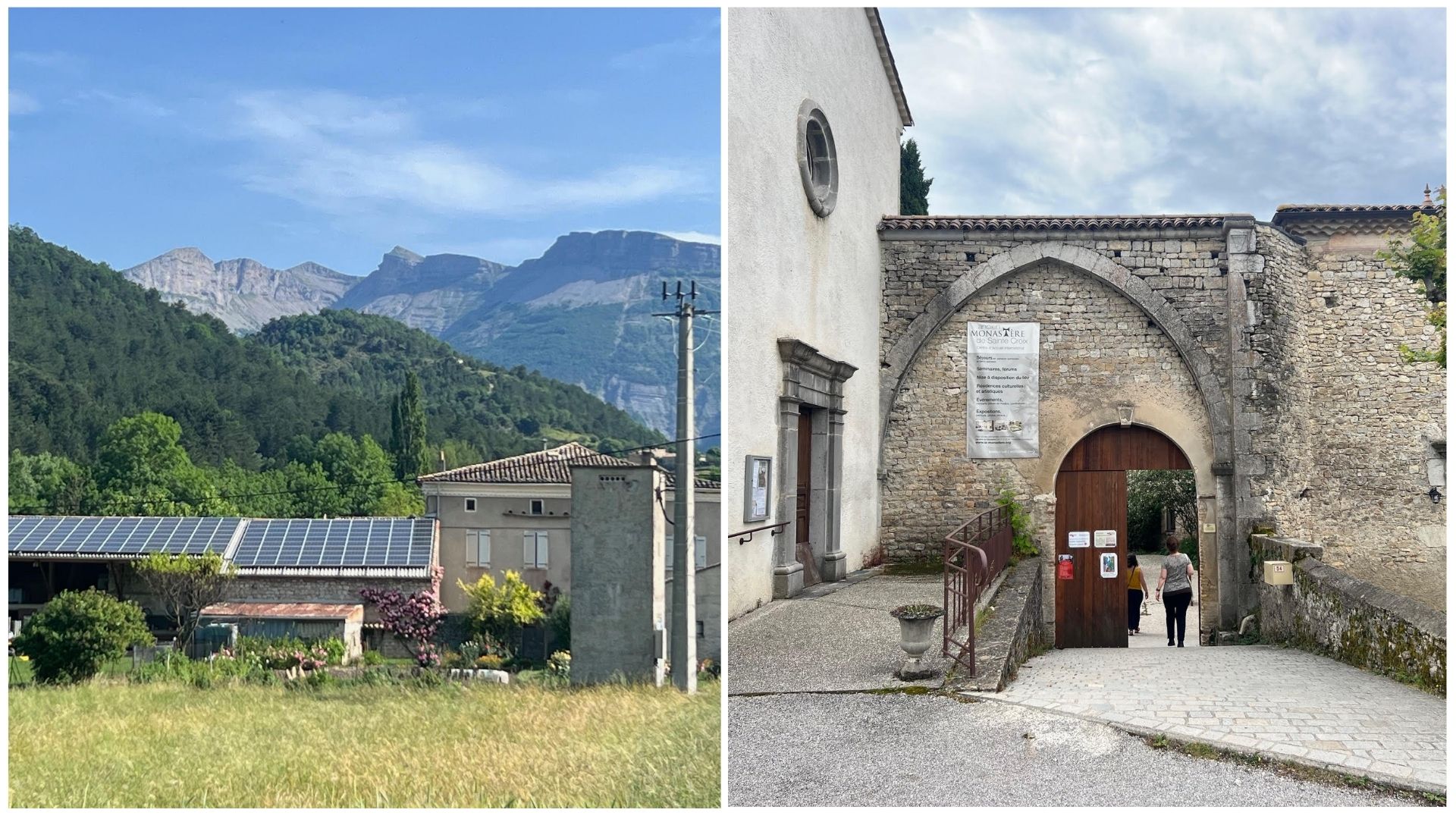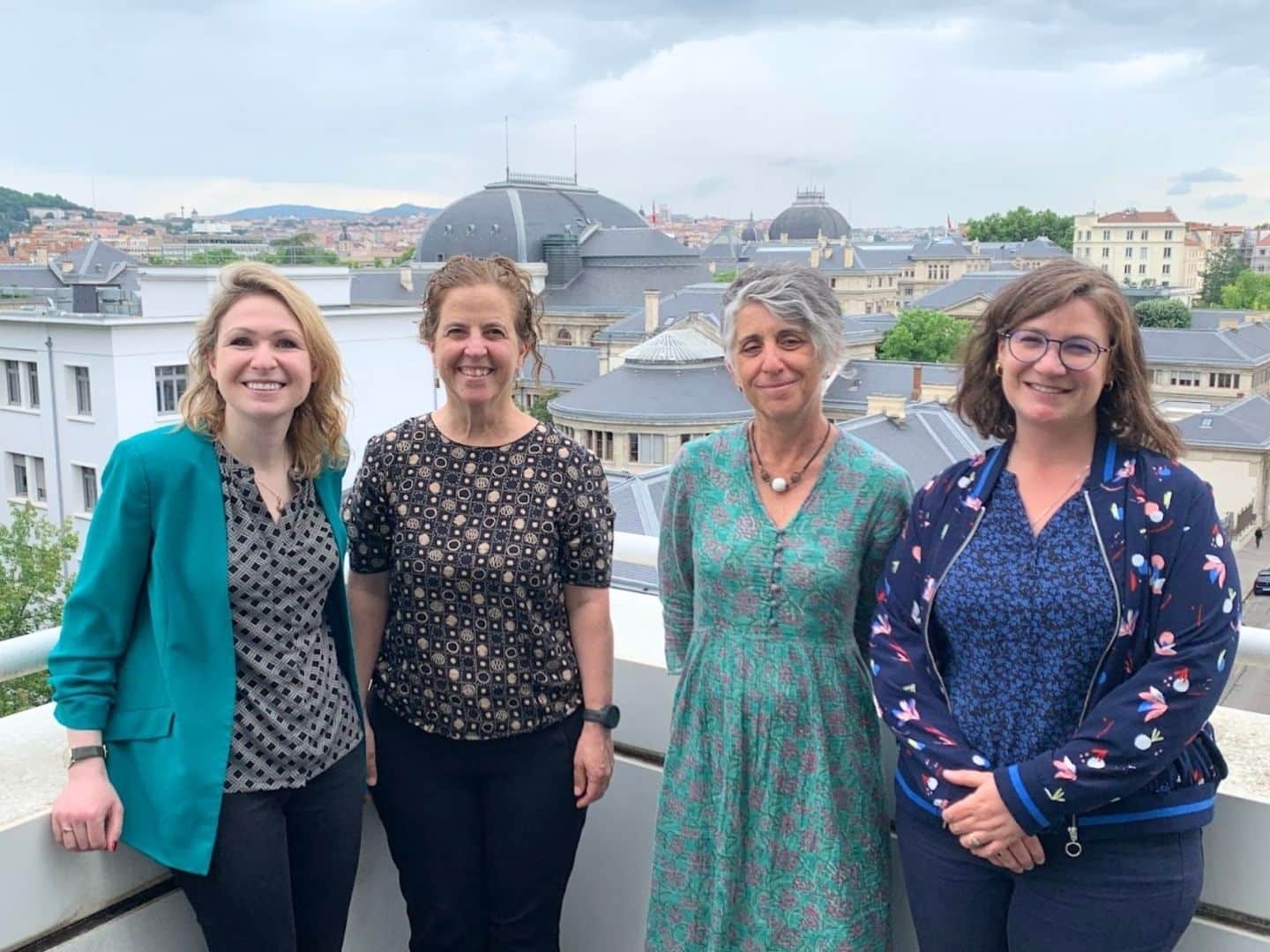CIEE’s Drs. Therese Peffer and Miriam Aczel recently visited Europe to present their research on responsible AI use and sustainable buildings as part of a multinational project supported by the France-Berkeley Fund. Established in 1993 as a partnership with the French Ministry of Foreign Affairs, the France-Berkeley Fund promotes and supports bi-national research partnerships between faculty and research scientists at the University of California and their counterparts in France. In partnership with the Laboratoire Aménagement Économie Transports (LAET) and co-investigators Dr. Nathalie Ortar and Dr. Aurore Flipo, the research team evaluates cross-continental approaches to urban sustainability and equity, using AI to determine efficient strategies for enhancing community-level climate adaptation.
Learn about the Laboratoire Aménagement Économie Transports
About the France-Berkeley Fund
Part of the project includes a co-authored paper that explores the opportunities and challenges of integrating artificial intelligence (AI) into urban sustainability projects. Titled “Assessing the Potential and Risks of AI for Just, Ethical, and Sustainable Urban Ecosystems,” the paper assesses the potential benefits and risks of deploying AI in community-based sustainability initiatives, specifically examining the potential future use of AI in two key urban resilience projects: the Oakland EcoBlock in California and the Lyon Confluence in France.
The CIEE-led Oakland EcoBlock project is pioneering a model for neighborhood-scale urban decarbonization that integrates energy- and water-efficient systems, electrification, and innovative financial and community governance structures. Its counterpart, the Lyon Confluence project, seeks to enhance housing availability in Lyon’s city center while integrating energy-efficient building infrastructures with “smart” grid systems, providing a test bed for AI-supported sustainability solutions. Researchers identified how tools like AI-powered 3D scanning, predictive energy management systems, and automated cost assessments could significantly advance the scalability, efficiency, and equitability of these models.

Learn about the Oakland EcoBlock project
Learn about the Lyon Confluence district
To ensure the reliable and responsible integration of AI into urban planning, the paper introduces a governance framework for ethical and sustainable AI in smart cities. This approach promotes joint oversight from technical experts, local community members, and policymakers to ensure ethical and environmentally responsible AI implementation.
“It has been especially meaningful to connect our EcoBlock work in California with Lyon’s Confluence district—exploring just and climate-resilient urban transformations and the potential role of AI from a global perspective,” said Dr. Aczel, “As a longtime Francophile, it’s been a particular joy to engage in this cross-cultural work that bridges research, policy, and place.”
In June, Peffer and Aczel visited the Lyon Confluence project and presented their research at the Environnement Ville Société, underscoring critical insights from the Oakland EcoBlock project and the California Energy Commission (CEC)’s Advanced Energy Communities (AEC) initiative. They highlighted the importance of meaningful community engagement, adaptive project design, and clear, inclusive communication in realizing equitable and scalable energy transitions.

Learn more about the presentation
Hosted by their French colleagues, they also toured the Valdequint cooperative in Saint Julien en Quint, a holistic program which integrates solar energy, cultural engagement, parenting support, and electric vehicle sharing to foster local resilience. In Sainte Croix, they explored a former Franciscan monastery that has been transformed into a community center with extensive energy-efficient renovations and photovoltaic panels for a future EV charging station.

Aczel expressed her gratitude for the unforgettable experiences of the recent trip. “This collaboration has helped me integrate the technical, environmental, and community dimensions of AI, linking my work on EcoBlock with my current research at UNU-INWEH on the environmental impacts of AI,” she reflected. “I’m excited to continue building on this work through future partnerships.”
Looking forward, Peffer and Aczel plan to share their research through a workshop at the Behavior, Energy & Climate Change (BECC) conference this November. As cities worldwide navigate climate change and urban development challenges, their research offers a roadmap for responsible AI to build sustainable, resilient, and inclusive communities.

